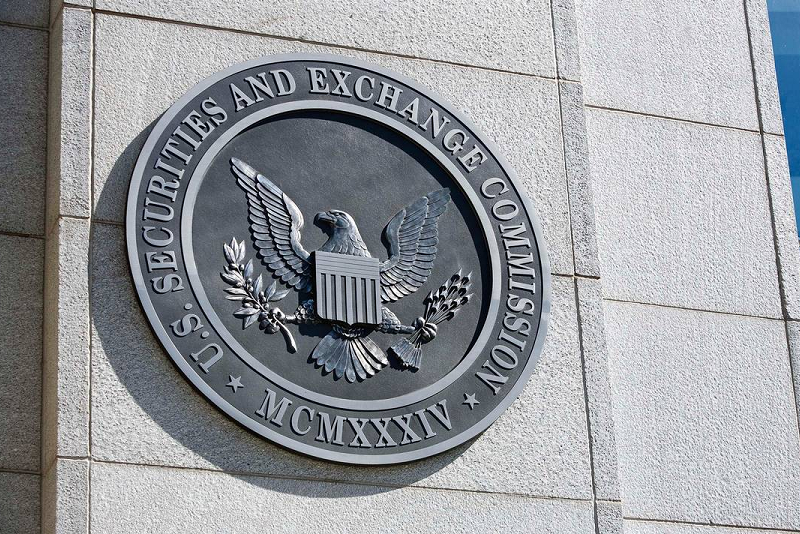BROWSE BY TOPIC
- Bad Brokers
- Compliance Concepts
- Investor Protection
- Investments - Unsuitable
- Investments - Strategies
- Investments - Private
- Features/Scandals
- Companies
- Technology/Internet
- Rules & Regulations
- Crimes
- Investments
- Bad Advisors
- Boiler Rooms
- Hirings/Transitions
- Terminations/Cost Cutting
- Regulators
- Wall Street News
- General News
- Donald Trump & Co.
- Lawsuits/Arbitrations
- Regulatory Sanctions
- Big Banks
- People
TRENDING TAGS
Stories of Interest
- Sarah ten Siethoff is New Associate Director of SEC Investment Management Rulemaking Office
- Catherine Keating Appointed CEO of BNY Mellon Wealth Management
- Credit Suisse to Pay $47Mn to Resolve DOJ Asia Probe
- SEC Chair Clayton Goes 'Hat in Hand' Before Congress on 2019 Budget Request
- SEC's Opening Remarks to the Elder Justice Coordinating Council
- Massachusetts Jury Convicts CA Attorney of Securities Fraud
- Deutsche Bank Says 3 Senior Investment Bankers to Leave Firm
- World’s Biggest Hedge Fund Reportedly ‘Bearish On Financial Assets’
- SEC Fines Constant Contact, Popular Email Marketer, for Overstating Subscriber Numbers
- SocGen Agrees to Pay $1.3 Billion to End Libya, Libor Probes
- Cryptocurrency Exchange Bitfinex Briefly Halts Trading After Cyber Attack
- SEC Names Valerie Szczepanik Senior Advisor for Digital Assets and Innovation
- SEC Modernizes Delivery of Fund Reports, Seeks Public Feedback on Improving Fund Disclosure
- NYSE Says SEC Plan to Limit Exchange Rebates Would Hurt Investors
- Deutsche Bank faces another challenge with Fed stress test
- Former JPMorgan Broker Files racial discrimination suit against company
- $3.3Mn Winning Bid for Lunch with Warren Buffett
- Julie Erhardt is SEC's New Acting Chief Risk Officer
- Chyhe Becker is SEC's New Acting Chief Economist, Acting Director of Economic and Risk Analysis Division
- Getting a Handle on Virtual Currencies - FINRA
ABOUT FINANCIALISH
We seek to provide information, insights and direction that may enable the Financial Community to effectively and efficiently operate in a regulatory risk-free environment by curating content from all over the web.
Stay Informed with the latest fanancialish news.
SUBSCRIBE FOR
NEWSLETTERS & ALERTS
Alpine Securities Violated AML Laws - SEC
by Howard Haykin
The SEC charged Alpine Securities Corporation, a Salt-Lake City-based broker-dealer, with violating anti-money laundering laws, as it pertains to its alleged practice of clearing transactions for microcap stocks that were used in manipulative schemes to harm investors. Scottsdale Capital advisors, an affiliated entity, introduced customers to Alpine, including those who conducted the majority of the transactions that are the subject of this matter. Like Alpine, Scottsdale’s business focuses on microcap stock transactions.
BACKGROUND. Alpine Securities is a Salt Lake City, UT-based self-clearing broker-dealer and a FINRA member since 1984. SCA Clearing, LLC, is Alpine’s parent company. Scottsdale Capital Advisors Corp., a retail and institutional broker-dealer that’s been registered with FINRA since 2002, is also registered as an RIA with the states of Arizona and California. All three companies are owned and operated by John Hurry, and to a less extent, by his wife Justine Hurry.
- The majority of Alpine’s business involves clearing microcap stock transactions for other firms. Since 2011, when John Hurry acquired Alpine, Scottsdale has been the source of most of Alpine’s business. While the SEC notes that Alpine has a history of disciplinary actions brought against it by FINRA (39 in number), BrokerCheck indicates that the last such action dates back to 2009.
- The SEC notes that, in 2011, Scottsdale was the subject of a FINRA enforcement action alleging, in addition to other violations, that Scottsdale filed deficient SARs. [AWC #2008011593301, involving Scottsdale and Justine Hurry]
- According to BrokerCheck, the following individuals are listed as officers of Alpine Securities:
► Christopher Frankel (CEO, CCO), with firm since 2015;
► Robert Tew (President), with firm since 2011;
► David Cazier (FinOp, COO), with firm since 2014;
► Nathan Simmons (General Counsel), with firm since 2014; and,
► Erin Ziprich (AML Officer), with firm since 2016.
SEC FINDINGS. The SEC’s complaint alleges that Alpine routinely and systematically failed to file SARs for stock transactions that it flagged as suspicious. When it did file SARs, Alpine allegedly frequently omitted the very information that formed the bases for Alpine knowing, suspecting, or having reason to suspect that a transaction was suspicious. As noted in the complaint, guidance for preparing SARs from the U.S. Treasury Department’s Financial Crimes Enforcement Network (FinCEN) clearly states that “[e]xplaining why the transaction is suspicious is critical.”
According to the SEC complaint, Alpine Securities is charged with:
- Systematically omitting from at least 1,950 SARs material, “red-flag” information of which it was aware and was required to report under its own BSA Compliance Program, such as a customer or issuer’s criminal or regulatory history, evidence of stock promotion, or whether a customer was a foreign financial institution, including at least 1,150 SARs which included only the customer name, date of deposit, dollar value of deposit, and the name of the security deposited;
- Filing SARs only on the deposit of stock in approximately 1,900 instances in which the stock was subsequently liquidated, but failing to file required SARs on subsequent related transactions such as the liquidation, or transfer of funds resulting from the liquidation, even though it had identified the deposit of the security as suspicious; and
- Failing to file at least 250 SARs within the required 30 days after the date the suspicious activity was detected.
- Alpine seldom closed Scottsdale-related accounts or refused to clear trades generated by such accounts during the relevant period. Alpine instead allowed Scottsdale’s customers to engage in suspicious transactions and filed thousands of SARs per year, more than any other individual broker-dealer. For its services, Alpine charged fees that were significantly higher than those charged by other clearing firms.
[Click here to access SEC Complaint.]





